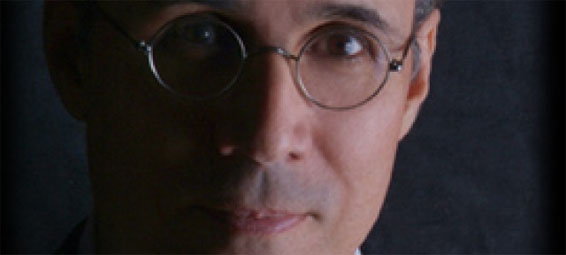Coincidence of schedule took this listener to two all-by-one-composer events in less than twenty-four hours last weekend. Friday night, I caught the second performance of the weekend’s all-Mozart concert by the Dallas Symphony at Meyerson Symphony Center. Saturday afternoon, I was at the Modern Art Museum of Fort Worth for a Cliburn Foundation presentation of music by songwriter John Bucchino, with Bucchino present and serving as pianist for the event. The performance also included two local professional singers as well as members of the Fort Worth Opera Studio.
I’m still a little disturbed philosophically by the Dallas Symphony’s month-long retreat into the past, opening with fair-to-middling performances of familiar works by Brahms, Dvorak, and Tchaikovsky on January 10-13 and the current two-week all-Mozart orgy. Devoting two of the programs in the orchestra’s reduced classical series to one composer simply isn’t fulfilling the orchestra’s long term responsibilities to broaden the audience’s range of musical intellect, and, indeed, cheats the composer of his historical context.
That said, the concert was, by all other measures, a total success, beginning with the lines of eager last-minute ticket buyers who showed up for the sheer joy of hearing music by a person who not only wrote deservedly beloved music but who was possibly the most intelligent human being ever. Music director Jaap van Zweden, back on the podium for a run of two weeks, opened with a brilliantly humorous and lively reading of the Overture to The Abduction from the Seraglio (with the janissary effects nicely emphasized), followed by an equally lively rendition with soloist Augustin Hadelich of the composer’s “Turkish” Violin Concerto. Although the next item on the agenda, Mozart’s Symphony No. 1 (possibly the best piece ever written by an 8-year-old, and certainly one of the weakest pieces in the symphonic repertoire) made an interesting contrast to the masterpiece that followed on the program, it was also six minutes of expensive concert time that might have been devoted to a living composer.
The final work on the agenda—the “Jupiter” Symphony—provided a worthy reminder of why people still love Mozart, and why people love to hear Van Zweden conduct Mozart.
* * * * *
While it’s almost a cliché to refer to a good songwriter as “our Schubert,” or “the Schubert of our time,” that comparison is more apt than usual in the case of John Bucchino, who drew a crowd of several hundred to his concert Saturday.
Although Bucchino’s idiom is definitely “popular” and even at times “pop” (artists who have sung his music range from Liza Minnelli and Art Garfunkel to Deborah Voigt), he embodies several of the aspects by which classical art song is judged to be great. The solo piano—Bucchino’s principal instrument—is magnificently integrated into his music, just as it is in a song of Schubert or Schumann or Wolf. This marvelous synthesis was beautifully illustrated in “Sepia Life,” with its complex subject matter and almost Scriabin-like accompaniment, as well as in the very subtle descending bass line at the end of “On My Bedside Table,” lending an almost unnoticed but utterly effective sadness to one of the funniest break-up ballads ever written.
Bucchino, who writes most of his own lyrics, in fact out-Schuberts Schubert in his powerful use of language—for instance, in golden lines like “the window may be shattered, but the door’s not locked” in “Love Quiz”—and in the jolting immediacy with which he addresses contemporary society. The one-sidedness of romantic songs of the past, in which one party typically dominates the other, is as absent from Bucchino’s music as it is from healthy contemporary relationships. The level playing field of Bucchino’s lyrics often strongly suggests same-gender romance (or failed romance); on the other hand, the tough and tender “Sweet Dreams” portrays a brief, intense friendship between a down-and-out gay guy and straight girl, succinctly placing both in the context of whole lifetimes—achieving in about five minutes what takes two hours for Puccini or Verdi.
With a lively interspersed commentary by Bucchino and series host Shields-Collins Bray, this hybrid of classical recital and theatrical revue transcended category and provided a superb distillation of the meaning and the possibility of the song in the twenty-first century.





